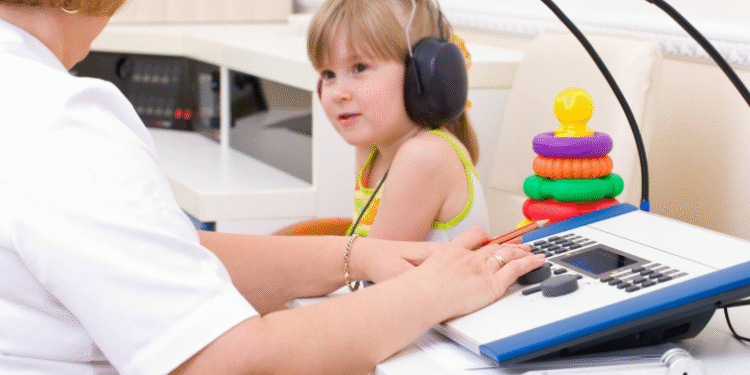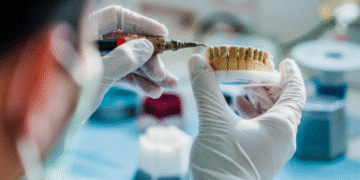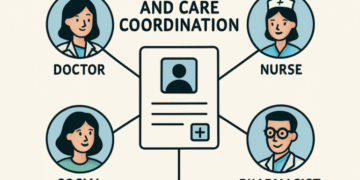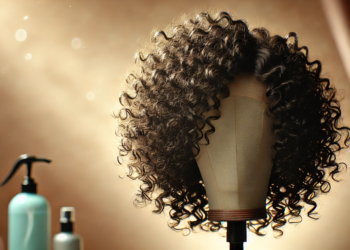As parents, we pay attention to so many little details about our children — the way they giggle, how they pronounce new words, the sparkle in their eyes when they’re excited. But sometimes, it’s easy to overlook one of the most important aspects of their development: their hearing.
Hearing plays a huge role in a child’s ability to learn, socialize, and build confidence. From the moment they start responding to your voice as a baby, their ears are guiding how they understand and connect with the world. That’s why having access to expert hearing care is so important — especially if you suspect your child might be struggling to hear clearly.
In this guide, we’ll walk you through what a children’s hearing test specialist does, when to consider visiting one, and how it can make a lasting difference in your child’s life.
Why Hearing Matters More Than You Think
We often associate hearing tests with older adults, but hearing health is just as important for children — perhaps even more so. In early childhood, the brain is still developing pathways for processing sound. If there’s an undetected issue, it can affect everything from speech clarity to classroom learning.
For example, imagine a child in kindergarten who mishears instructions from their teacher. Over time, this can lead to frustration, decreased participation, and even behavioral challenges. In contrast, a child with healthy hearing can confidently follow along, respond appropriately, and fully engage in their environment.
In fact, studies have shown that early intervention for hearing loss significantly improves outcomes in language development and social skills. It’s not just about “hearing sounds” — it’s about hearing well enough to thrive.
Signs Your Child Might Need a Hearing Test
Children don’t always realize when their hearing isn’t normal. Instead, they adapt — and that’s where parents, teachers, and caregivers play a crucial role in noticing changes.
Here are some common signs that it might be time for a check-up:
- Frequently asking “What?” or “Can you say that again?”
- Turning the TV or music volume up higher than usual
- Trouble following conversations in noisy environments, like playgrounds or classrooms
- Delays in speech or unclear pronunciation
- Not responding when called from another room
- Seeming withdrawn or less engaged in group activities
These signs don’t always mean there’s a serious issue, but they are worth investigating. Early detection can prevent long-term challenges in both communication and learning.
What a Children’s Hearing Test Specialist Does
When you visit a children’s hearing test specialist, you’re not just getting a quick “pass or fail” result — you’re getting a full, professional evaluation of your child’s hearing health. These specialists use age-appropriate techniques and tools to make the process comfortable and even fun for kids.
For toddlers, the test might involve playing simple games where the child responds to sounds. For school-aged children, the specialist might use headphones and ask them to indicate when they hear different tones.
More advanced assessments can include:
- Otoscopy – A quick look inside the ear with a light to check for wax buildup or infection.
- Tympanometry – Measures how well the eardrum moves to detect middle-ear issues.
- Audiometry – Evaluates hearing sensitivity across different pitches and volumes.
Because specialists are trained to work with children, they know how to keep the experience positive, avoiding stress or discomfort.
The Emotional Impact of Good Hearing
Hearing isn’t just about academic performance — it’s also tied to confidence and relationships. When a child hears clearly, they can join in conversations without feeling left out, pick up on jokes with friends, and respond naturally in group settings.
Think about a child’s first school play or sports event. Clear hearing ensures they can follow cues, appreciate applause, and truly feel part of the moment. Without that, these milestones might be overshadowed by confusion or uncertainty.
It’s similar to how pilots rely on clear radio communication during flights — even small disruptions can lead to big misunderstandings. For children, consistent hearing is the “clear signal” they need to navigate life’s social and educational adventures.
When to Seek Professional Help
While routine screenings at school are helpful, they don’t always catch every issue. If you’ve noticed persistent signs of hearing trouble or have a family history of hearing loss, booking a professional test is a smart move.
You don’t have to wait until symptoms get worse. Early testing can identify even mild hearing challenges, allowing for solutions like simple earwax removal, medical treatment, or hearing aids if necessary.
If you’re ready to take that step, a children’s hearing test specialist can provide a thorough evaluation and guide you toward the right care for your child.
Supporting Your Child After a Diagnosis
If a hearing issue is detected, the good news is that there are many ways to support your child — and most are highly effective. This can include medical treatment for infections, speech therapy, assistive listening devices, or hearing aids tailored for children.
Equally important is emotional support. Explain the situation to your child in a way they can understand, focusing on solutions rather than limitations. For younger children, you might compare wearing a hearing aid to wearing glasses — it simply helps them experience the world more clearly.
Schools can also make accommodations, like seating your child closer to the teacher, using microphones, or providing extra visual cues during lessons. By combining medical care with these practical adjustments, you can help your child thrive and reach their full potential.
The Bigger Picture: Hearing Health for Life
Just like dental checkups or vision tests, hearing evaluations should be a routine part of your child’s healthcare. Regular monitoring ensures that any changes are caught early, and your child always has the tools they need to succeed.
Hearing health also has cultural and educational implications. For instance, in music education, the ability to detect pitch and rhythm relies heavily on clear hearing. In language learning, exposure to accurate sounds shapes pronunciation. These areas of development are closely tied to how children interact with the world and express themselves.
By treating hearing as an essential part of overall well-being, we can give children the best possible start — not just in academics, but in life as a whole. For more context on how hearing affects learning and development, you can explore the topic of auditory processing in greater detail.
Final Thoughts
Your child’s hearing is a gateway to learning, connection, and confidence. Whether they’re laughing at a joke, following instructions in class, or singing along to a favorite song, every moment is shaped by their ability to hear clearly.
Take the next step to protect your child’s future. Schedule a hearing evaluation with a children’s hearing test specialist today and ensure your child can hear, learn, and thrive.










